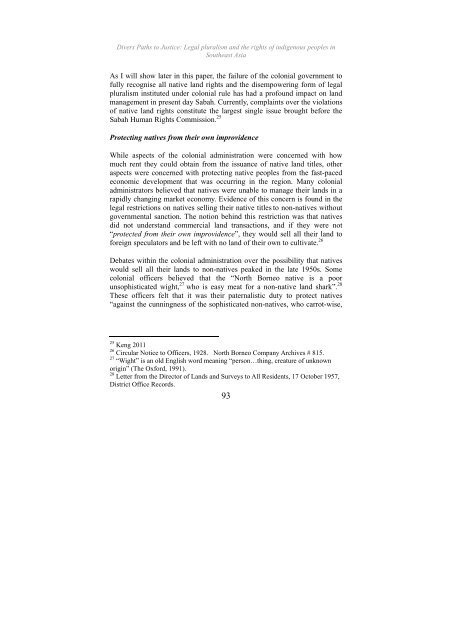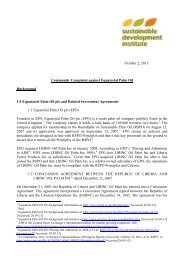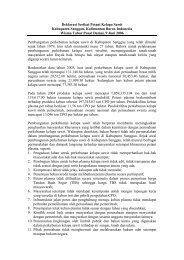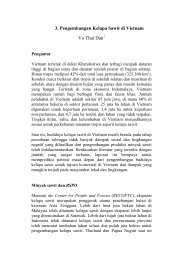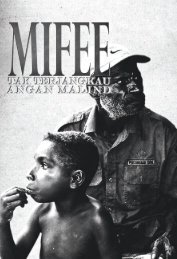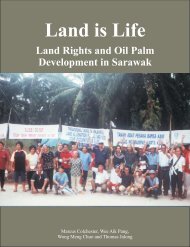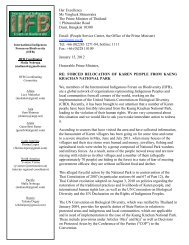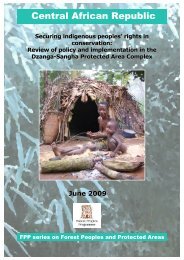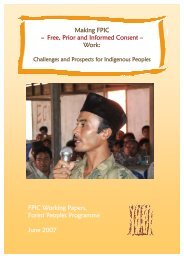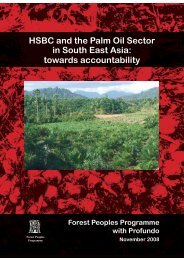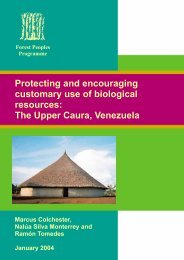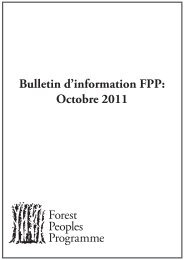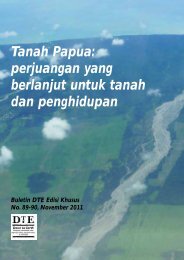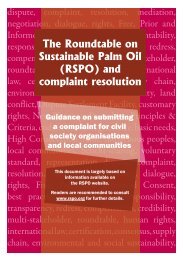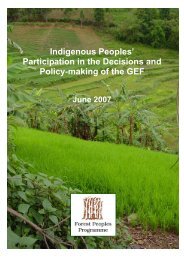Divers Paths to Justice - English - Forest Peoples Programme
Divers Paths to Justice - English - Forest Peoples Programme
Divers Paths to Justice - English - Forest Peoples Programme
You also want an ePaper? Increase the reach of your titles
YUMPU automatically turns print PDFs into web optimized ePapers that Google loves.
<strong>Divers</strong> <strong>Paths</strong> <strong>to</strong> <strong>Justice</strong>: Legal pluralism and the rights of indigenous peoples inSoutheast AsiaAs I will show later in this paper, the failure of the colonial government <strong>to</strong>fully recognise all native land rights and the disempowering form of legalpluralism instituted under colonial rule has had a profound impact on landmanagement in present day Sabah. Currently, complaints over the violationsof native land rights constitute the largest single issue brought before theSabah Human Rights Commission. 25Protecting natives from their own improvidenceWhile aspects of the colonial administration were concerned with howmuch rent they could obtain from the issuance of native land titles, otheraspects were concerned with protecting native peoples from the fast-pacedeconomic development that was occurring in the region. Many colonialadministra<strong>to</strong>rs believed that natives were unable <strong>to</strong> manage their lands in arapidly changing market economy. Evidence of this concern is found in thelegal restrictions on natives selling their native titles <strong>to</strong> non-natives withoutgovernmental sanction. The notion behind this restriction was that nativesdid not understand commercial land transactions, and if they were not“protected from their own improvidence”, they would sell all their land <strong>to</strong>foreign specula<strong>to</strong>rs and be left with no land of their own <strong>to</strong> cultivate. 26Debates within the colonial administration over the possibility that nativeswould sell all their lands <strong>to</strong> non-natives peaked in the late 1950s. Somecolonial officers believed that the “North Borneo native is a poorunsophisticated wight, 27 who is easy meat for a non-native land shark”. 28These officers felt that it was their paternalistic duty <strong>to</strong> protect natives“against the cunningness of the sophisticated non-natives, who carrot-wise,25 Keng 201126 Circular Notice <strong>to</strong> Officers, 1928. North Borneo Company Archives # 815.27 “Wight” is an old <strong>English</strong> word meaning “person…thing, creature of unknownorigin” (The Oxford, 1991).28 Letter from the Direc<strong>to</strong>r of Lands and Surveys <strong>to</strong> All Residents, 17 Oc<strong>to</strong>ber 1957,District Office Records.93


